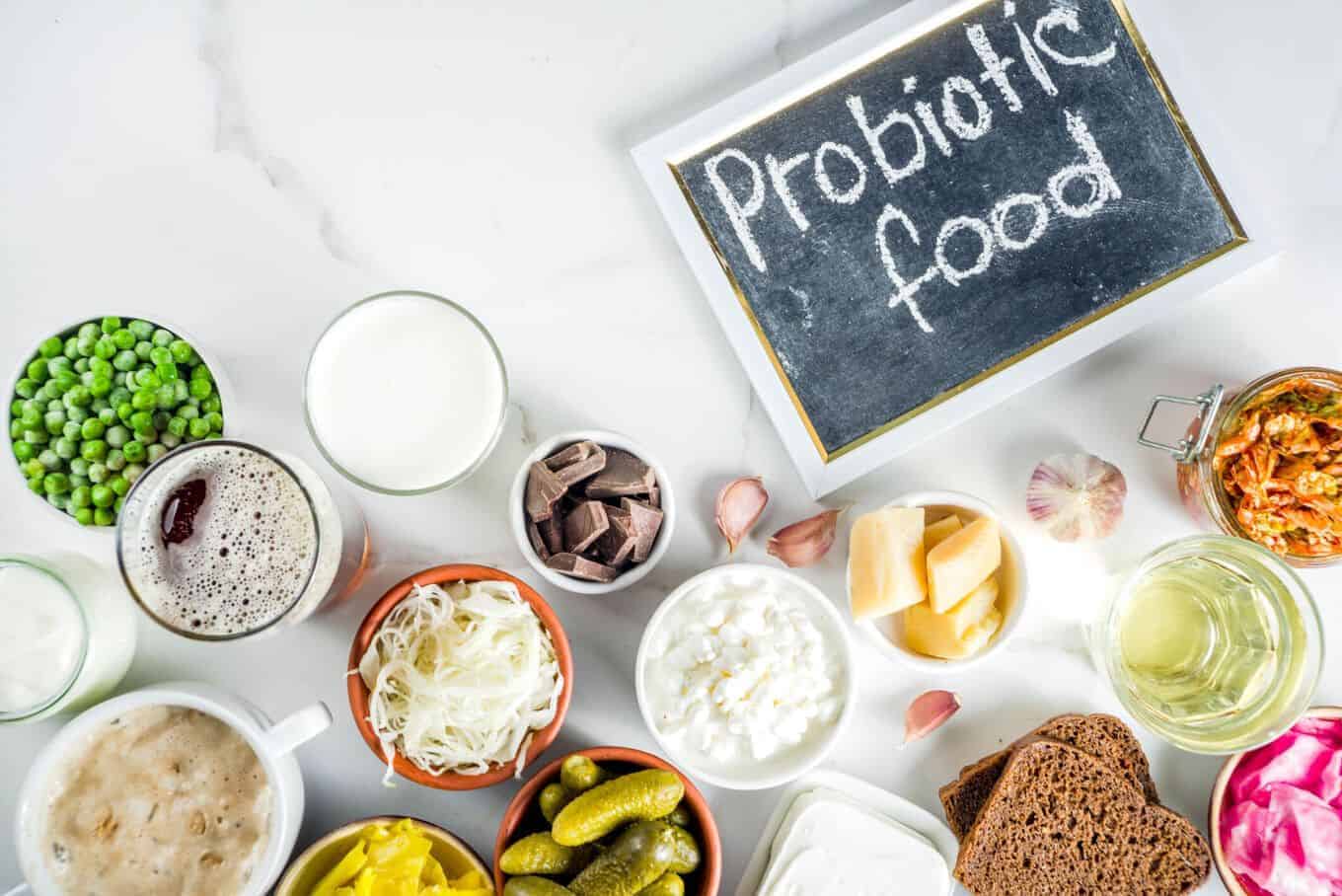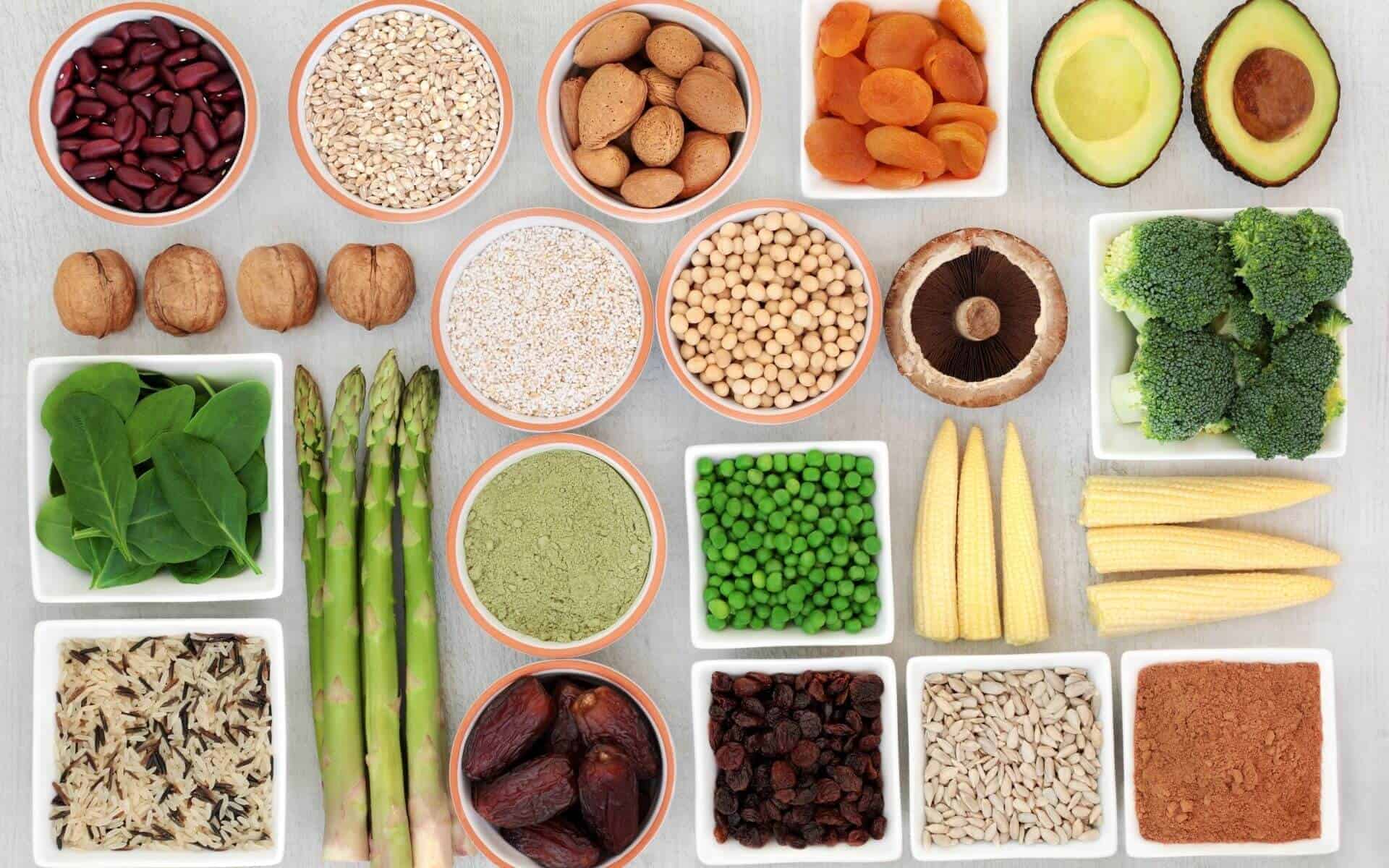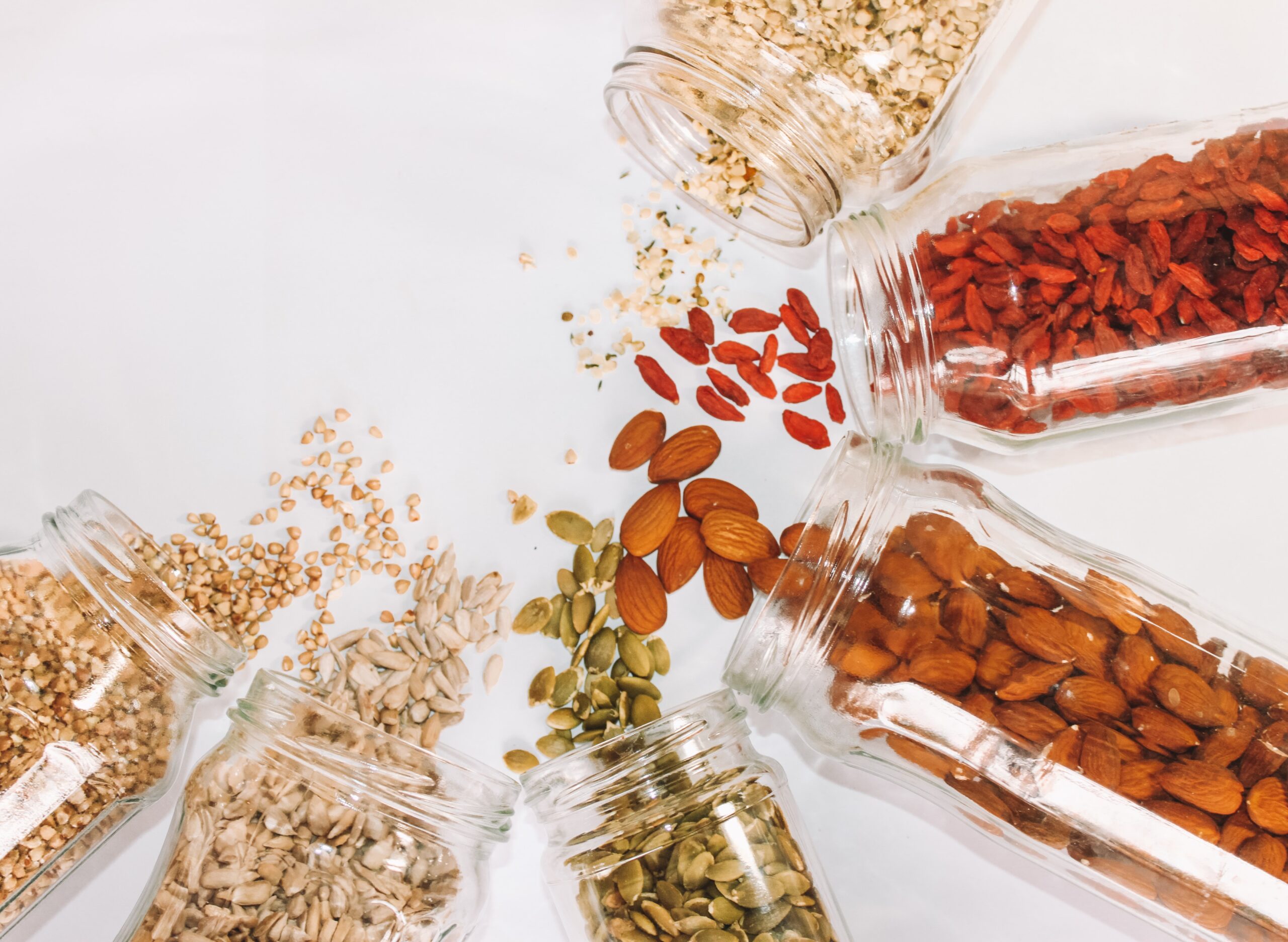Did you know that your gut health has a significant impact on your overall health? In fact, there are trillions of bacteria in our guts that have been shown to regulate everything from mood and weight to immune function. This blog post will discuss how probiotics and prebiotics can help improve gut health, which affect all the systems of the body.
The 411 on Our Guts
The gut is the part of the digestive system that helps us digest food through enzymes; it also absorbs nutrients from our meals. The microbiome refers to all of the bacteria in this area (totaling about three pounds total!) (1). Of these, there are both good and bad bacteria. Good bacteria (or microbiota) are necessary for digestion. The microbiome is one of the most important aspects of our overall health even though it’s not something that we often think about. Taking care of your gut can help you feel better and even prevent future illness.
The Importance of a Healthy Gut
Good gut health is more than just about digestive issues. There are several ways in which good gut health affects the entire body, including:
Fighting Inflammation
Good gut health has been shown to reduce inflammation by fighting off inflammatory bacteria and by reducing intestinal permeability, which is the result of stress and other factors that cause inflammation in the gut. Probiotics have also been shown to reduce inflammation in the colon. Eating a diet high in gut-healthy fibers leads to the fermentation of good gut bacteria, which produces short-chain fatty acids that improve gut health and can help control inflammatory responses throughout the body (2).
Preventing Breakouts
Some aspects of your diet can cause inflammation, leading to breakouts on your skin. Having good gut health has been shown to reduce acne by increasing good bacteria and reducing the bad bacteria that causes inflammation and acne (3).
Reducing Allergies and Asthma
Probiotics can help prevent allergies by building stronger immune systems, which means your body is better able to fight off the allergy-triggering substances that come into contact with it. Allergies are caused by an overactive immune response triggered by the body’s exposure to substances that it deems harmful—whether or not these substances actually pose a threat. Recent research shows that babies who consume probiotics during their first year of life have a lower risk of developing allergies as children and adults. This is because they help regulate normal immune function (4).
Regulating Moods and Anxiety Levels
Serotonin, the neurotransmitter which regulates mood and appetite, is mostly found in our gut. That means that there are strong connections between gut health and mental health. The gut microbiome can also affect feelings of anxiety and depression because it can affect dopamine levels—it’s even been shown that people with Parkinson’s disease have a depletion of good bacteria in their gut. Furthermore, some neurotransmitters are produced by microbiota and regulate moods as well as gastrointestinal function (5).
Improving Cardiovascular Health
Probiotics may help reduce heart disease risk due to their anti-inflammatory properties, which have been shown to reduce heart disease risk. Prebiotics are fermented by gut bacteria into short-chain fatty acids that also promote healthy cholesterol levels and can help lower inflammation in the body—which is a major factor for cardiovascular health (6).
Boosting Immunity and Preventing Infections
Probiotics have been shown to improve immunity by increasing the production of antibodies, which fight off infections in addition to reducing inflammation—which means your body can better defend itself against diseases. Prebiotics have also been shown to boost immunity by increasing the production of cytokines, which are proteins that fight off infections and regulate the immune system—including antibody-producing cells (7).
Aiding in Weight Loss
The microbiome may play a role in weight loss because studies indicate that people who have a healthy microbiome are less likely to be obese. One study found that people who supplement with probiotics lose more weight and body fat than those using placebo supplements (without the living microorganisms) (8).
Controlling Blood Sugar
Having a diverse and healthy gut microbiome has been shown to improve insulin sensitivity, which can help regulate blood sugar levels. This is especially helpful for people who suffer from diabetes or other conditions where glucose in the bloodstream needs to be monitored closely in order to maintain overall health and reduce the risk of complications.
How to Get a Healthy Gut
There are several ways to promote good gut health:
- Eating a healthy and diverse diet that is rich in lean proteins, complex carbohydrates, and healthy fats
- Limiting your intake of sugars and processed foods
- Exercising regularly
- Reducing stress levels through meditation or mindfulness practices
- Getting enough rest
- Try to avoid certain medications like antibiotics, antacids, and painkillers (which can over- or under-emphasize different types of gut flora)
- Drinking plenty of water; we need to make sure our bodies are hydrated in order for our digestive systems to be healthy
- Eating probiotics and prebiotics
What are Probiotics?

Probiotics are live microorganisms that have been shown to have a positive impact on the microbiome when consumed regularly in adequate amounts via food sources or supplements (9). The most commonly known probiotics are found in yogurt, but they can also be found in kimchi and sauerkraut as well as other fermented foods including miso paste, tempeh, and kefir.
What are Prebiotics?

Prebiotics support the growth of good bacteria throughout your entire body by serving as a food source for this bacteria. Prebiotics can also promote good bacteria and reduce bad organisms like E. coli by providing a food source for “good” bacteria to grow healthy colonies, which makes it harder for them to be overtaken by harmful microorganisms (10). Prebiotics can be found in things like asparagus, artichokes, and whole grains. They are also added to certain foods like yogurt and cereal bars.
What’s the Difference Between Probiotics and Prebiotics?
Probiotics contain live microorganisms that have been shown to positively impact gut health when taken regularly. Meanwhile, prebiotics are non-digestible, or insoluble, fibers that help nourish existing good bacteria in the body. Both probiotics and prebiotics have been shown to promote better gut health, but they both serve different purposes—which is why it’s best to include them both in your daily diet for maximum results!
Probiotics and prebiotics both provide nutrition to gut bacteria. Lactobacillus, a type of probiotic, is known for keeping bad organisms such as E. coli in check while promoting healthy levels of good bacteria like Lactobacillus acidophilus—which has been shown by research studies to improve digestion and provide other benefits. Bifidobacterium, another type of probiotic, has been shown to reduce bad bacteria in the digestive tract while also boosting immunity by producing antibodies that fight off infections—which is why it’s often included in children’s yogurt (10).
By eating a healthy diet and incorporating both probiotics and prebiotics into your life, you’ll find that good gut health benefits everyone from children to adults!
Tips to Remember:
- Probiotic supplements are good if you’re not getting enough probiotics from food sources like yogurt or kimchi.
- Prebiotics can be found in a wide variety of foods; check out the list above to see if any of those sound like they might work for you!
- Healthy gut health is crucial to overall health and well-being—so nourish your microbiome by eating probiotic and prebiotic-rich foods!
- A healthy microbiome is also important for weight loss efforts, so make sure you’re nourishing your gut with the right foods.
Probiotics and prebiotics are both beneficial to overall health because they support a healthy gut microbiome. If you want to get probiotic or prebiotic supplements, talk to your doctor about which one might be right for you. And remember that the best way to nourish your microbiome is by consuming whole foods with plenty of prebiotics and probiotic benefits!
Sources
- Ferranti, Erin P et al. “20 things you didn’t know about the human gut microbiome.” The Journal of cardiovascular nursing vol. 29,6 (2014): 479-81. doi:10.1097/JCN.0000000000000166
- Lobionda, Stefani et al. “The Role of Gut Microbiota in Intestinal Inflammation with Respect to Diet and Extrinsic Stressors.” Microorganisms vol. 7,8 271. 19 Aug. 2019, doi:10.3390/microorganisms7080271
- Yan, Hui‐Min, et al. “Gut microbiota alterations in moderate to severe acne vulgaris patients.” The Journal of dermatology 45.10 (2018): 1166-1171.
- Sestito, Simona, et al. “The role of prebiotics and probiotics in prevention of allergic diseases in infants.” Frontiers in Pediatrics 8 (2020).
- Cenit, María Carmen et al. “Influence of gut microbiota on neuropsychiatric disorders.” World journal of gastroenterology vol. 23,30 (2017): 5486-5498. doi:10.3748/wjg.v23.i30.5486
- Esgalhado, Marta, et al. “Short-chain fatty acids: A link between prebiotics and microbiota in chronic kidney disease.” Future microbiology 12.15 (2017): 1413-1425.
- Shokryazdan, Parisa et al. “Effects of prebiotics on immune system and cytokine expression.” Medical microbiology and immunology vol. 206,1 (2017): 1-9. doi:10.1007/s00430-016-0481-y
- Wiciński, Michał et al. “Probiotics for the Treatment of Overweight and Obesity in Humans-A Review of Clinical Trials.” Microorganisms vol. 8,8 1148. 29 Jul. 2020, doi:10.3390/microorganisms8081148
- Hemarajata, Peera, and James Versalovic. “Effects of probiotics on gut microbiota: mechanisms of intestinal immunomodulation and neuromodulation.” Therapeutic advances in gastroenterology vol. 6,1 (2013): 39-51. doi:10.1177/1756283X12459294
- Singh, Rasnik K et al. “Influence of diet on the gut microbiome and implications for human health.” Journal of translational medicine vol. 15,1 73. 8 Apr. 2017, doi:10.1186/s12967-017-1175-y







